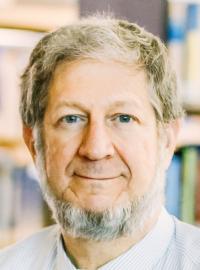- Speaker
- Prof. David E. Keyes
- Extreme Computing Research Center, King Abdullah University of Science and Technology
- Abstract
Algorithmic adaptations to use next-generation computers close to their potential are underway. Instead of squeezing out flops – the traditional goal of algorithmic optimality, which once served as a reasonable proxy for all associated costs – algorithms must now squeeze synchronizations, memory, and data transfers, while extra flops on locally cached data represent only small costs in time and energy. After decades of programming model stability with bulk synchronous processing, new programming models and new algorithmic capabilities (to make forays into, e.g., data assimilation, inverse problems, and uncertainty quantification) must be co-designed with the hardware. We briefly recap the architectural constraints and application opportunities. We then concentrate on two types of tasks each of occupies a large portion of all scientific computing cycles: large dense symmetric/Hermitian linear systems (covariances, Hamiltonians, Hessians, Schur complements) and large sparse Poisson/Helmholtz systems (solids, fluids, electromagnetism, radiation diffusion, gravitation). We examine progress in porting "exact" and hierarchically rank-reduced solvers for these tasks to the hybrid distributed-shared programming environment, including the GPU and the MIC architectures that make up the cores of the top scientific computers "on the floor" and "on the books".
- About the Speaker
Prof. David Keyes is the director of the Extreme Computing Research Center at King Abdullah University of Science and Technology, where he was a founding dean in 2009, and an adjunct professor of applied mathematics at Columbia University. Keyes earned his BSE in Aerospace and Mechanical Engineering from Princeton and his PhD in Applied Mathematics from Harvard. He works at the algorithmic interface between parallel computing and the numerical analysis of partial differential equations. He is a Fellow of SIAM and AMS and has received the AMC Gordon Bell Prize, the IEEE Sidney Fernbach Award, the Euro-Par Achievement Award, and the SIAM Prize for Distinguished Service to the Profession.
- Date&Time
- 2018-10-18 11:00 AM
- Location
- Room: A203 Meeting Room




